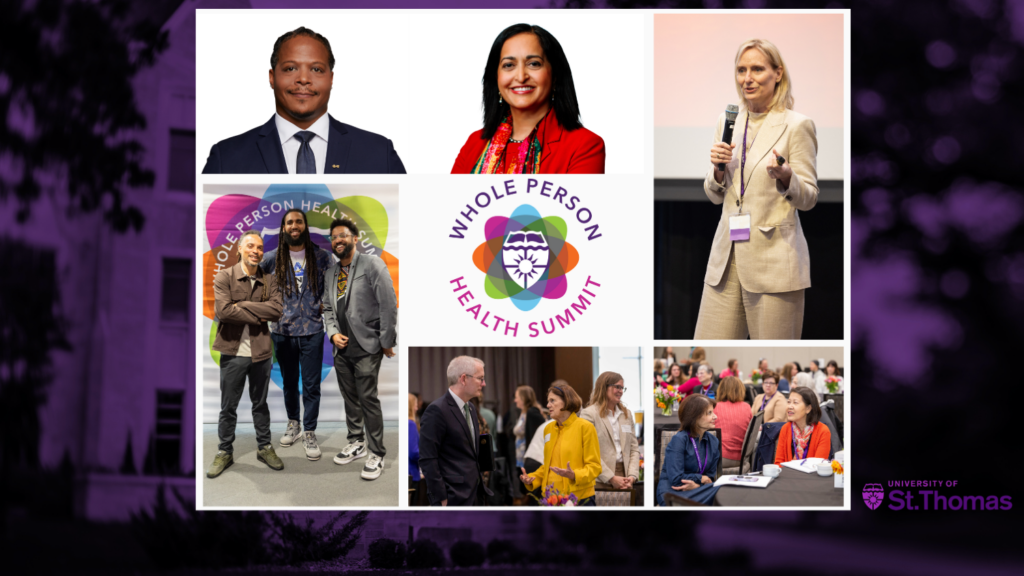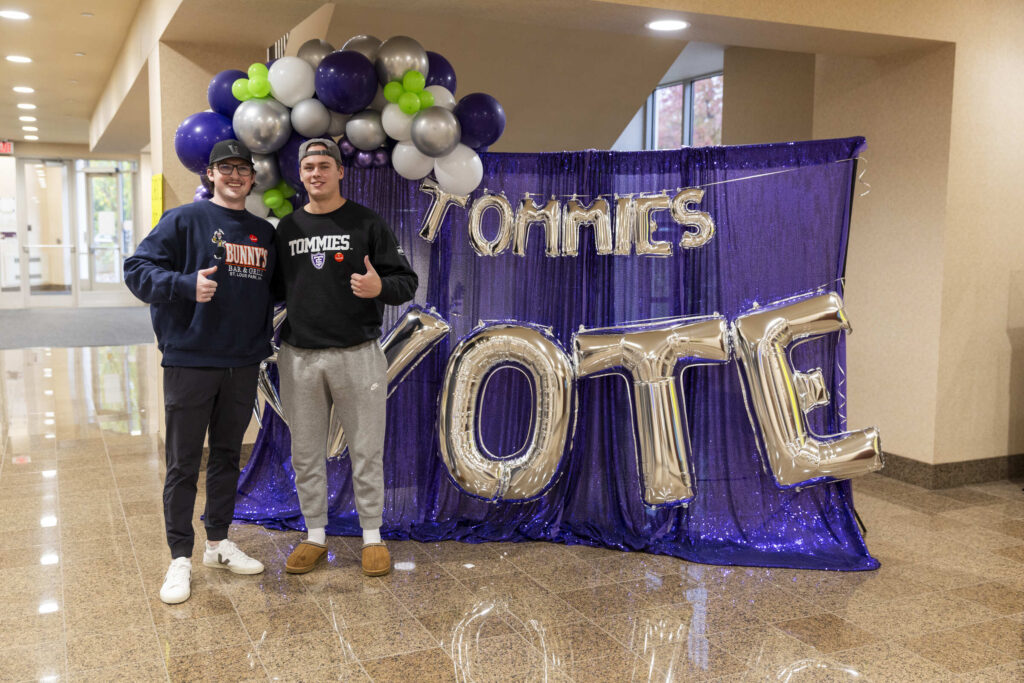UST's Student Health Service and Minneapolis Quick Clinic have an ample supply of H1N1 vaccine available for students, faculty and staff who have not yet received the vaccination. Most of the current cases of flu continue to be caused by H1N1 virus, with very little seasonal flu reported. Flu activity, caused by either H1N1 or seasonal flu viruses, is expected to continue for several more months.
Individuals may call to schedule an appointment or simply walk-in from 8 a.m. to noon or from 1 to 4:30 p.m. Monday through Friday at Student Health Service on the St. Paul campus (lower level, Brady Hall) or 2 to 6 p.m. Tuesday and Wednesday at the Minneapolis Quick Clinic (lower level, Terrence Murphy Hall) to receive the H1N1 vaccine.
The Centers for Disease Control (CDC) recommends influenza vaccination as the first and most important step in protecting against the flu and is now encouraging everyone to get vaccinated against H1N1, including people 65 years and older.
The Student H1N1 Report of Absence Web site system will continue to be activated for the spring semester with influenza updates posted on the UST Pandemic Plan Web site. Students, faculty and staff are encouraged to practice influenza prevention measures.
Influenza Prevention Tips
Stay as healthy as you can. Get plenty of rest; don’t smoke; if you drink, limit your alcohol intake to no more than one to two drinks in one sitting; and eat a balanced diet.
- Avoid close contact. Avoid close contact with people who are sick. When you are sick, keep your distance from others to protect them from getting sick, too.
- Stay home when you are sick. If possible, stay home from work, school and errands when you are sick. You will help prevent others from catching your illness.
- Cover your mouth and nose. Cover your mouth and nose with a tissue when coughing or sneezing. It may prevent those around you from getting sick.
- Clean your hands. Washing your hands often will help protect you from germs.
- Avoid touching your eyes, nose or mouth. Germs are often spread when a person touches something that is contaminated with germs and then touches his or her eyes, nose or mouth.
Contacts
- Student Health Service, (651) 962-6750
- UST Minneapolis Quick Clinic, (651) 962-4750
Links






